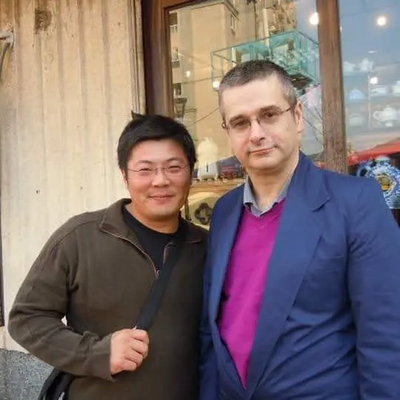Jonathan (JPB) founder of LibDem Friends of Taiwan talks with CLDs

CLD: Please tell us a bit about yourself and how you developed your interest in Taiwan?
JPB: I joined the Liberal Democrats in 2004. I would have been a member of an Alliance party from 1983/84 but I was brought up as a Jehovah's Witness, and the group forbids political involvement. I have been an active member of my branch since then, running as a ward candidate a number of times.
As well as Taiwan I am passionate about Europe being a core member of the cross-party campaign Cardiff for Europe since 2016.
I lived in Taiwan in 2009 and 2010. I found the political situation of the island fascinating. I discovered the Liberal English language newspaper Taipei Times, in a newsagent. Since my time there I have been a daily reader of the Taiwanese press, and kept up with developments, there.
The year of 2015 saw both ends of my political interest overlap. The historic victory of our Liberal International sister the Democratic Progress Party victory in Legislative assembly and Presidential elections. That contrasted so strongly with the trauma of May 2015 here. I contacted Tim Farron as Liberal Democrat leader and suggested he send a letter to Tsi Win as a fellow liberal. He did so and
I believe it is important that those who champion democracy should support each other.
CLD: What are your observations of the political future of Taiwan?
JPB: Unfortunately, the status quo is not an alternative allowed by the CCP. In 2008 the People's Assembly passed the "Anti Succession act" it caused consternation in Taiwan and extended the post TianAnMen Square European Union ban on arms exports. Not only did it threaten war on Taiwan should it declare independence or redefine its constitution as the Republic of Taiwan etc.. but also, commands the Bejing regime to continually assess the rate of progress to unite with China. If that progress is considered to have stalled, then to use force to "reunify" China.
The strategy Beijing has appears to be isolation, restriction, and finally elimination. The level of sovereignty Taiwan enjoys legally is based on the Monte de video criteria. The convention became international law in 1930. A political territory has sovereign rights when its authorities' control both internal policies and external relations. Now the Qing Empire had control both, as a briefly 8 years annexed colony, until the peace treaty between China and Japan in 1898, handed over Taiwan to the Japanese Empire. If Taiwan comprises that power, it both legally and practically loses sovereign rights, reduces the diplomatic space it can operate in, and encourages further intimidation and aggressive action by Beijing.
CLD: Has the invasion of Ukraine affected your current analysis?
JPB: The robustness of support that Ukraine has received has concerned the Leadership of the CCP. Tyrants have had a tendency to dismiss democracy as a decadent system of states divided internally and unable to stand together.
The next term of office is a shorter time frame than President Xi Jing has in mind. Rarely do leaders extend their terms beyond the permitted and hoard power, set any other limit to their reign than death. As Guy Verhofsadt said, he has crowned himself on a golden throne.
I believe that in the short term; he will increasingly shed the "peaceful" rise strategy and intimidate both democratic Taiwan and other nations. Australia, its near neighbours and even a street in Manchester have seen evidence of that assertiveness. Hopefully, dissent within the CCP, as displayed by President emeritus Hu, will cause his life presidency to be curtailed.
In the long-term I believe his replacement of collective leadership, with a personality cult, will prevent China from achieving its full potential. I believe that, as Mill said, the problem of command and control Marxist governance was that it exchanges the wisdom of the many with rule by a few. The post Mao settlement, with collective CCP leadership and term limits did much to address its issues.
One thing I think we should make clear: being against tyranny doesn't make us anti-China. The problem I have is with an undemocratic and anti-democratic system. I also have a problem with the Communist Party of Great Britain. The difference is that the CCP has power over a huge nation and is extending it.
Picture shows Jonathan with a Taiwanese friend
